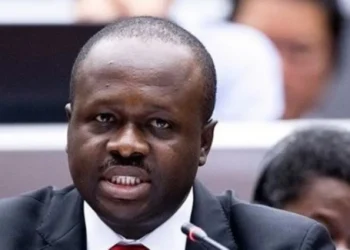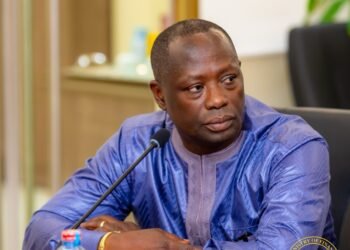The Finance Minister, Ken Ofori-Atta, has predicted an increase of about 2.8 percent in the fiscal deficit due to the impact of the coronavirus pandemic on the local economy.
The virus has affected many economies worldwide and Ghana is no exception. Its effect on Ghana’s economy is likely to cause the deficit target to widen beyond the Fiscal Responsibility Act’s threshold of 5 percent.
In a bid to control the excess spending of budget fiscal deficit during an election year, the Akuffo-Addo administration established the Fiscal Responsibility Act which forbids any administration from crossing a fiscal deficit target of 5 percent. According to experts, the government can spend at 4.7percent of the GDP and break the norm of exceeding the budget deficit target in every election year.
However, the sudden impact of the coronavirus pandemic on revenue and expenditure has made this unachievable. According to the Minister, the target may rise to as high as 7.8 percent – the highest ever recorded under the Akufo-Addo administration.
Mr. Ofori-Atta said that when it is translated into money, the deficit will increase from the programmed GH¢18.9 billion to GH¢30.2 billion, the variance equivalent to 2.9 percent of GDP. The primary balance will also worsen from a surplus of GH¢2.8 billion to a deficit of GH¢5.6 billion, representing 1.4 percent of GDP.
All these have been caused by the coronavirus pandemic which is estimated by Mr. Ofori-Atta to cost the economy, at least, GH¢9.5 billion, representing 2.5 percent of GDP.
Mitigating measures
The minister further enumerated some measures government has planned to take to mitigate the situation. These include lowering the cap on the Ghana Stabilisation Fund (GSF) from the current US$300 million to US$100 million in accordance with Section 23 (3) of the Petroleum Revenue Management Act (PRMA).
This measure, he said, will enable the excess amount in the GSF account over the US$100 million cap to be transferred into the Contingency Fund for it to be used to fund the Coronavirus Alleviation Programme (CAP). This process will free up some GH¢1.2 billion to fund the CAP.
Other mitigation measures, the minister said, is to arrange with the Bank of Ghana to defer interest payments on non-marketable instruments estimated at GH¢1.2 billion to 2022 and beyond; and adjust expenditures on Goods and Services, and capital expenditure downwards by GH¢1.2 billion.
Again, government says it will secure a World Bank loan of GH¢1.7 billion; and an International Monetary Fund (IMF) loan of GH¢3.1 billion; and further reduce the proportion of Net Carried and Participating Interest due GNPC from 30 percent to 15 percent.
Another measure which has sparked some controversy between government and the opposition party is the amendment of the Petroleum Revenue Management Act (PRMA) to allow a withdrawal from the Ghana Heritage Fund – which has an estimated US$591 million – to undertake emergency expenditures in periods of national emergency.
The aforementioned measures, though, will not bring the deficit down to within the fiscal rule target, it will, at least, reduce it to 6.6 percent of GDP.



















